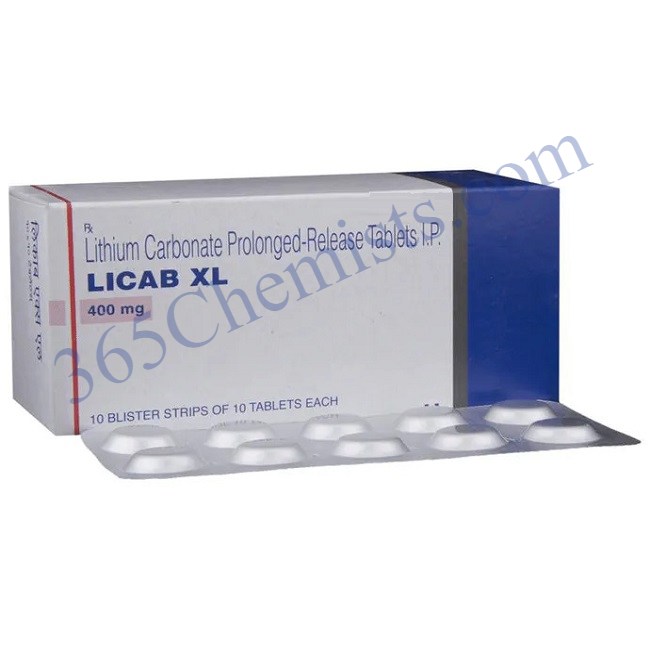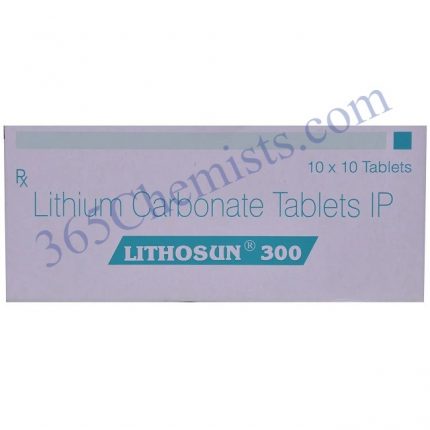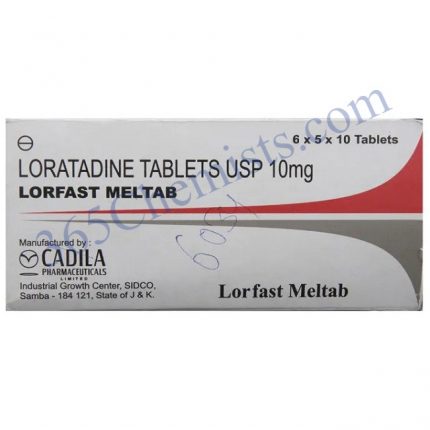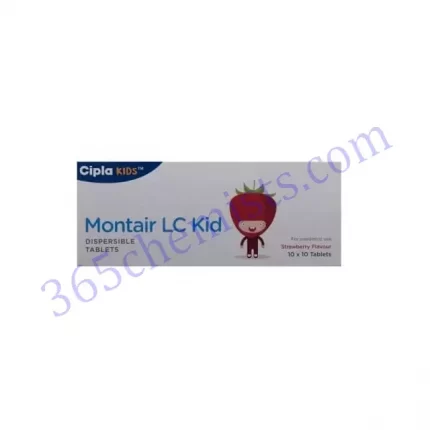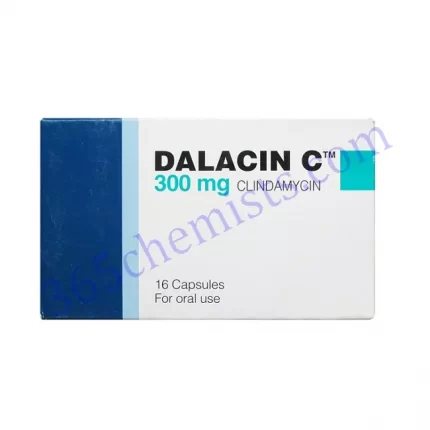INTRODUCTION
LICAB XL 400MG contains Lithium which belongs to the group of medicine called mood stabilizing agents. It is indicated in the treatment and prevention of mania or manic depression (manic episodes of bipolar disorder) and recurrent depression in adult patients. It is also used to control behavioral disorders like aggression and intentional self-harm.
Manic depression (also Bipolar disorder) is a serious mental illness in which the person will experience an extreme mood swings that includes emotional highs (called as manias) and lows (called as depression). Symptoms of mania includes motor hyperactivity, pressure of speech, lack of sleep and aggressiveness, while symptoms of depression include feeling sad, apathy, suicidal thoughts, restlessness, crying, fatigue, lack of sleep and lack of concentration.
LICAB XL 400MG acts by reducing the abnormal and excessive activity of neurons in the brain, leading to the suppression of both mania and depression. This medicine can be taken with or without meals. Any huge changes made in your diet pertaining to consumption of water and sodium (salt intake) should be informed to your doctor. Before and while taking this medicine, your doctor would regularly check the functions of your kidneys, heart and thyroid gland as a precaution to avoid unwanted side effects.
Inform your doctor immediately if you experience any unusual side effects while taking this medicine. Your doctor might reduce the dose or suggest an alternative therapy. Constant monitoring of lithium levels in blood are required in patients having any infection, underlying disease or low levels of magnesium, potassium and calcium in blood.
The most common side effects of taking this medicine are nausea, diarrhea, dryness in mouth, tremor of hands, difficulty in thinking and weight gain. Contact your doctor if any of the symptom bothers you. Before taking this medicine, inform your doctor if you have any serious kidney disease. LICAB XL 400MG is not recommended for use in pregnant or breastfeeding women and in children under 18 years of age. Consult your doctor before taking.
USES OF LICAB XL 400MG
Treats and prevents mania, or manic depression
Prevents recurrent depression
HOW LICAB XL 400MG WORKS
Lithium is a mood stabilizing agent. It works by suppressing the abnormal and excessive activity of neurons in the brain. It reduces the activity of excitatory neurotransmitters (such as dopamine and glutamate) and increases the activity of inhibitory neurotransmission (GABA) which helps in reducing the symptoms of mania and depression.
DIRECTIONS FOR USE
Take LICAB XL 400MG as directed by your physician. It can be taken with or without meals. Swallow the medicine as whole with a sip of water. Do not crush or chew the medicine. Your doctor will decide the correct dose and duration for you depending upon your age, body weight and health condition. Continue to take this medicine, as long as your doctor tells you to do so, to obtain better results.
SIDE EFFECTS OF LICAB XL 400MG
SERIOUS
Changes in heart rhythm
Signs of serotonin syndrome (fever, confusion, agitation, trembling and abrupt contractions of muscles)
Signs of neuroleptic malignant syndrome (fever with rigid muscles, agitation, confusion, sweating, or jerky muscle movements)
Persistent headaches and/or visual disturbances
Rhabdomyolysis (breakdown of muscles)
Mental problems
COMMON
Nausea, diarrhea
Dry mouth and changes in taste
Kidney problems (increased urination or thirst, swollen ankles)
Thyroid problems (hypothyroidism or tumor in thyroid gland)
Mild tremor (shaking of hands)
Feeling tired or sleepy
Weight gain
Cognitive impairment (loss of memory), difficulty in thinking
Sexual dysfunction
Skin problems (including skin rash, itching, worsening of psoriasis or acne and hair loss)
Increased blood calcium, magnesium and sugar levels
HOW TO MANAGE SIDE EFFECTS
Nausea:
Try taking this medicine with, or just after meals. Stick to simple meals. Do not eat rich or spicy food.
Diarrhea:
Drink lots of fluids, such as water or juice, to avoid dehydration. Do not take any medicines without speaking to a doctor.
Skin rash or itching:
Avoid hot showers because hot water can irritate the skin. Do not rub or scratch the affected area. Use sunscreen and protective clothing when outdoors. Regularly use moisturizers to soothe and hydrate the affected area. If the symptoms still persist, contact your doctor.
Weight gain:
Try to exercise more regularly, for e.g., by going for a daily walk or run.
WARNING & PRECAUTIONS
PREGNANCY
LICAB XL 400MG should be used with caution in pregnant women. Consult your doctor before taking this medicine.
BREASTFEEDING
LICAB XL 400MG is not recommended for use in breastfeeding women unless necessary. Discuss the risks and benefits with your doctor.
DRIVING AND USING MACHINES
Do not drive or operate any tools or machines, because this medicine may cause dizziness.
ALCOHOL
Avoid consumption of alcohol while taking this medicine.
KIDNEY
LICAB XL 400MG is not recommended for use in patients having serious kidney disease. Consult your doctor for advice.
ALLERGY
Do not take this medicine if you are allergic to lithium.
HEART DISEASE
LICAB XL 400MG is not recommended for use in patients having problems in heart rhythm or Brugada syndrome (a hereditary disease affecting the heart). Consult your doctor for advice before taking.
OTHERS
Before taking LICAB XL 400MG, inform your doctor if you:
Have epilepsy
Have persistent headaches with or without visual disturbances
Have low levels of potassium, magnesium and calcium in your blood
Recently had or going to have a weight loss surgery
INTERACTIONS
Talk to your doctor, if you are taking,
Antibiotics (used to treat infections) e.g. tetracyclines, metronidazole, IV erythromycin, sparfloxacin, co-trimoxazole, trimethoprim and spectinomycin
Non-steroidal anti-inflammatory drugs (e.g. celecoxib, indomethacin, diclofenac or ibuprofen)
Medicines used to treat heart problems
Corticosteroids (used to treat allergy or inflammation) e.g. prednisolone, betamethasone or hydrocortisone
Theophylline (used to treat asthma)
Caffeine (a CNS stimulant)
Sodium bicarbonate (used to relieve heartburn)
Carbonic anhydrase inhibitors (used to treat high blood pressure) e.g. acetazolamide
Urea (used to treat certain skin conditions)
Medicines used to treat schizophrenia and other behavioural disorders
Medicines used to treat epilepsy (e.g. carbamazepine, phenytoin or clonazepam)
Medicines used to treat depression (e.g. fluoxetine or paroxetine, amitriptyline)
Muscle relaxants used in anaesthesia (e.g. pancuronium)
Sumatriptan (used to treat migraine)
Arsenic trioxide (used to treat leukemia)
Cisapride (used to treat stomach and gut problems)
Medicines used to treat malaria (e.g. halofantrine, mefloquine and artemisinin derivatives)
Dolasetron (used to treat nausea and vomiting following chemotherapy)

